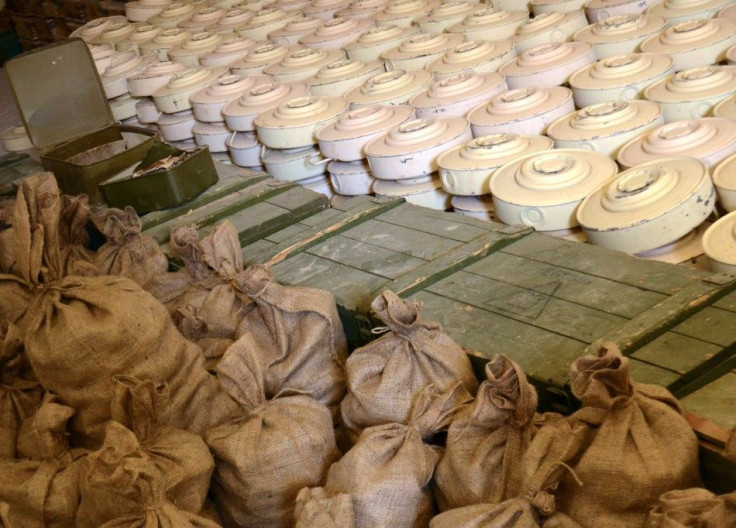Syrian Forces Plant Landmines On Border: Report

Syrian forces are laying landmines on the country's borders to stop refugees from escaping, the Human Rights Watch (HRW) organization reported on Tuesday.
Tens of thousands of people have fled Syria since the violence began there last March, most fleeing to neighboring Turkey and Lebanon. But President Bashar al-Assad's government seems determined to stop the outward flow of people.
Earlier this month, pro-Assad forces destroyed a bridge on the Syria-Lebanon border that had been used evacuated wounded civilians who had managed to escaped from the city of Homs, which is currently surrounded by the Syrian army. The government is now apparently using mines to stop refugees from leaving, as well as to prevent arms from entering the country.
Any use of anti-personnel landmines is unconscionable. There is absolutely no justification for the use of these indiscriminate weapons by any country, anywhere, for any purpose, said Steve Goose, HRW's arms division director.
According to Goose, Syria is probably using the PMN-2 anti-personnel mine and the TMN-46 anti-tank mine, both of which are Russian made. The explosives have already killed and injured a number of people, including a 15-year-old boy who lost his right leg trying to leave Homs.
The United Nations estimates that 30,000 people have fled abroad and another 200,000 Syrians have left there homes and are internally displaced. At the start of the conflict, most of the refugees went to Turkey, where the government set up refugee camps.
As fighting spread south from the central and northern provinces to cities like Damascus and Daraa, more refugees began fleeing to Lebanon and Jordan, where local families were encouraged to take in Syrians as camps are constructed.
Along with civilians, the escape routes are being used by soldiers defecting from the Syrian military. Many of them have joined with the Free Syrian Army (FSA), now based in Turkey, which has been fighting against Assad since July.
The FSA has been reportedly running out of munitions since the month-long battle began in Homs, but weapons and supplies are trickling into Syria from neighboring countries.
Syria is not a signatory on the 1997 Mine Ban Treaty, also known as the Ottawa Treaty, which seeks to eliminate all anti-personnel mines from the world.
The HRW report is based on eye-witness accounts and information from Syrian de-miners.
© Copyright IBTimes 2025. All rights reserved.





















